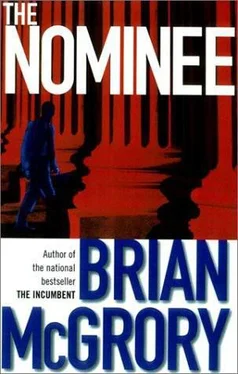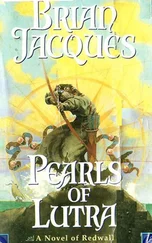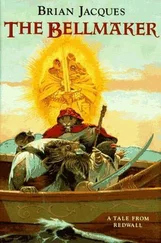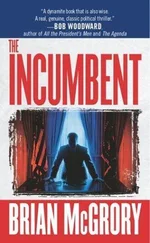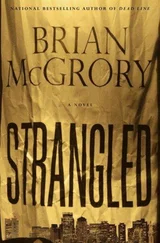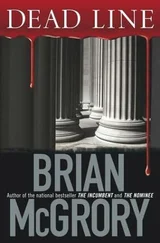On about my fifth minute with the jump rope, it was either stop or die, so I caught my breath and began trotting around the pond toward the point of this Public Garden excursion, my meeting with Paul Ellis, who I could already see sitting on a wooden bench reading that day’s paper.
Here, in a nutshell, is how that meeting would proceed:
Paul: “Jack, I’d like you to come over to the front office and start acting like the newspaper executive that you’re destined to be.”
Jack (that’s me): “No thank you.”
That would be followed by another temporary stalemate, which would be followed by another meeting next month. And so forth. In my mind, you string together enough temporality and you’ve created permanence. Or maybe not. We’d just have to wait and see, which I guess disproves the point.
Paul Ellis, by the way, is the publisher ofThe Boston Record, and as such, is not accustomed to hearing the word “No” with any great regularity, or even mild irregularity, as they describe it in all those TV commercials, especially from people like me, meaning people who work for him.
Allow me to explain. My name is Jack Flynn. I’m the senior investigative reporter forThe Boston Record, a lofty position bestowed upon me after I wrote an exposé on a failed presidential assassination attempt a little more than two-and-a-half years ago. I was hurt in that shooting in more ways than one, and helped in other ways as well, but I’ll spare you the details just now. The most important detail to keep in mind is that I’m home now.
Paul Ellis is, in the lingo of the business, my rabbi, an uncanny judge of talent who hired me at theRecord, promoted me to my current job, gave me an equity stake in the company to persuade me from jumping ship to theWashington Post or theNew York Times, and is now trying to convince me to become his heir apparent in the publisher’s suite. That last bit is only partly out of respect for my abilities, more out of disdain for those of his younger cousin, Brent Cutter, currently the newspaper’s president and the obvious choice to be the next publisher. That’s just a theory, but my theories have a way of revolving into fact.
All of which, of course, leaves me with a choice. I could wear monogrammed custom-made shirts and dine on catered lunches as nervous vice presidents trek to my carpeted office with promises of shaving another 2.2 percent off the bottom line, or I could run around the city and its surrounding suburbs with a Bic Click and a yellow legal pad looking for news wherever I can find it, which isn’t often where any normal person wants to be. So far, I choose the latter. Call me a moron, but I’m in love with words rather than numbers, emotion rather than profit. It comes down to how you want to live a life. Mine was being lived richer, but poorer, if you know what I mean.
Anyway, the Cutter-Ellis family has ownedThe Boston Record for one hundred and twenty-seven years, and over that time, has created not only one of the best family-owned newspapers in America, but one of the best newspapers of any kind. They’ve done it with equal parts journalistic savvy and unabashed paternalism. I’m a case in point for both.
“Hello, Paul,” I said as I pulled within hearing distance of him.
Paul Ellis looked up slowly from the paper, his eyes, unusually sad, framed by uncharacteristically dark lines and grooves. His gloomy appearance stood in stark contrast to the glorious signs of spring all around us — the delicious odor of warm, fertile earth, the sun gleaming off the Hancock Tower in the near distance, the occasional self-important duck who had made his sojourn north.
“Step into my office,” he said in a melancholic voice.
“My god, Paul,” I said, standing over him. “You look awful. You dip into capital or something?” A little Wasp humor. Too little, apparently, because he didn’t even feign a smile.
“Sit down, Jack.”
As I sat, he folded up his newspaper and placed it on the bench beside him, allowing me to catch a glimpse of the banner headline: “Governor Randolph to Be Nominated U.S. Attorney General.” I all but choked on my own good mood. When did this happen? Why? How did we find out? No editor had called me, and I saw nothing the prior night on the television news.
“Can I take a quick look at your paper, Paul?”
The byline was that of our star political reporter, the venerable Robert Fitzgerald. He attributed the information to “an official familiar with the White House,” and the story indicated that the leak had occurred late Saturday night, which explains why I had previously heard nothing about it. The Rose Garden press conference announcing the nomination, the story said, was scheduled for tomorrow afternoon.
“Quite a hit,” I said, almost to myself, as I immediately began a quick and silent assessment of my own Randolph information, calculating the potential impact on his nomination. I suddenly liked my position — a lot. And now was not the time to care about all those pesky focus groups telling us that no one give’s a rat’s ass about politics anymore.
I looked up at Paul, who was staring at the ground in front of him. He looked as if he was unsure what to say, or at least how to say it.
“Everything good with you?” he finally asked, his chin resting on his knuckles, his elbows on his knees.
He didn’t seem to need an answer, so I replied, “They’re terrific. This is a great hit by Fitzgerald today.”
“Let’s hope it holds up,” he said absently.
Regarding Paul Ellis, he looked how an aging newspaper publisher should look, which is to say tall, perfectly manicured, and handsome in that unassuming, Jimmy Stewart kind of sixty-something way. He acted how a newspaper publisher should act, which is also to say, thoughtful, inquisitive, and confident. He was, quite literally, born to run the business, and did it quite well, inheriting the reins of a great newspaper from his cousin, John Cutter, and turning it into an even more reputable and profitable one. Best of all, he saw theRecord not so much as a family cash cow, but as a calling, a form of public service different than politics or philanthropy, but not for one fraction of a single second any less important or noble.
He stared at me and said, “This isn’t a good day for us, Jack, not for me, not for you, not for this city.”
Since I have never known Paul Ellis to be even remotely melodramatic, I kept my mouth shut and my eyes trained on him, letting him continue at his own pace.
“We’re facing a hostile takeover,” he said, meeting my stare. “A couple of weeks back, we got what’s known as a bear-hug letter. I thought we could make the problem go away, but now our lawyers and finance guys are saying they don’t think we can ward it off. Minority shareholders rights’ and all that — if we fight it, we could be crippled by a lawsuit from within our ranks.
“Two of the three trusts that control fifty-three percent of the newspaper were opened last year, and now the Campbell Newspaper Company has come in with an offer that none of those shareholders will want to refuse. They’re offering fifty-four a share. That’s ten bucks over Friday’s closing, a nearly twenty-five percent gain.”
I was stunned into silence as a dozen images floated through my mind, most of which involved me without a decent job and steady income. I eventually managed to say, “Doesn’t Campbell Newspapers own theSpringfield American?”
Paul replied, “And theBurlington News and theRochester Gazette and theLincoln Daily Star and two dozen remarkably mediocre small and mid-sized newspapers, all of which are incredibly profitable, and none of which have ever been known for their distinguished journalism.”
“Great. Why does a chain like that want a paper like ours, and how the hell can they afford us?”
Читать дальше
